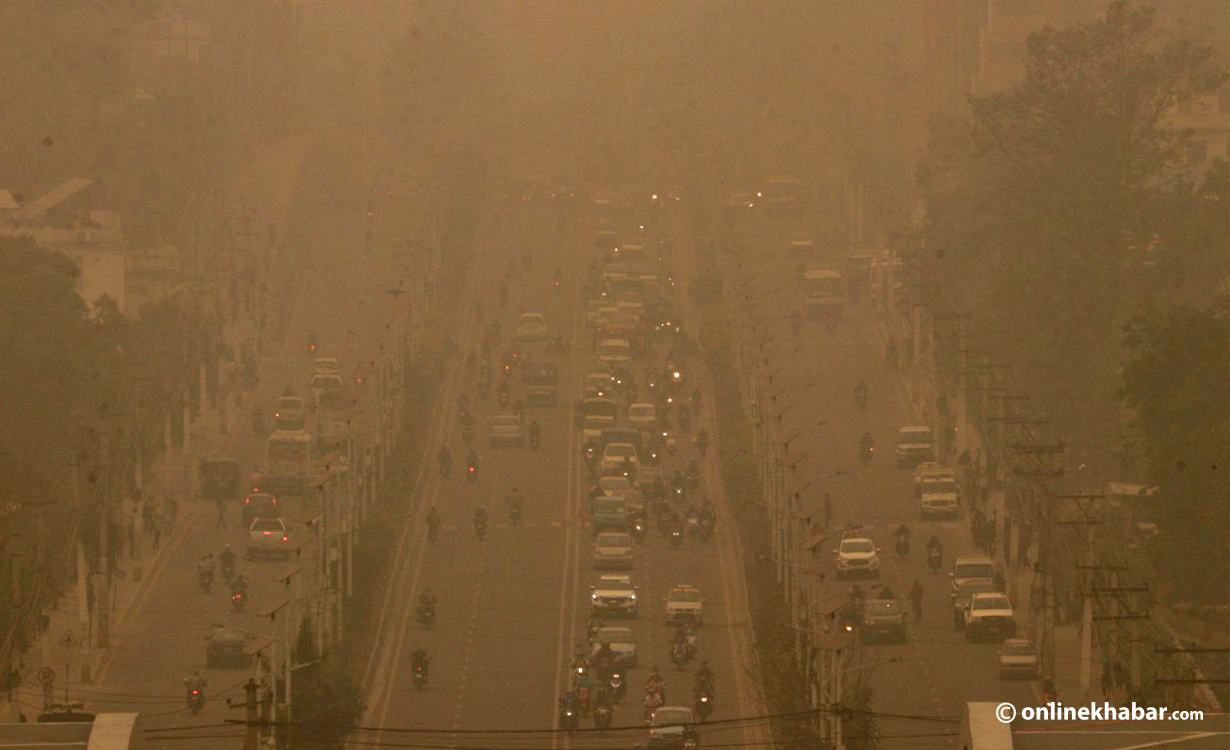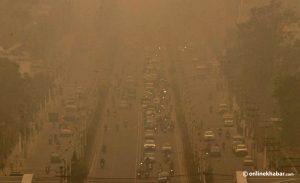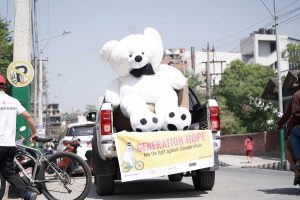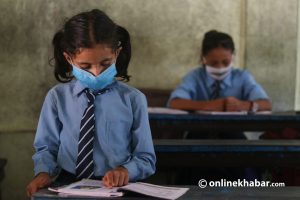For the past few weeks, smog has completely engulfed central Nepal, majorly the Kathmandu valley. Due to that, the air quality in the major places of this area is getting hazardous every day.
Uncontrolled wildfires in most places of the country, lack of rain, emissions of harmful gases and smoke from the industries and vehicles, and lack of strong wind are cited as factors behind the smog blanketing central Nepal.
The depleted air quality in the country has several immediate and long-term impacts on the general health of people. Here, Dr Rakshya Pandey, a senior consultant for pulmonary and critical care medicine at HAMS Hospital, presents an overview of the problems that this level of air pollution can cause to the health of the people.
Immediate health impacts

Pollution is called the ‘silent killer’ as the effect of the pollution is neither visible nor painful immediately. However, it continues to have deadly effects on people’s health and is slowly killing us. Also, for a few days, many have been facing the immediate impacts of pollution, such as:
- Difficulty in breathing
- A constant burning sensation in the eyes
- Sore throats
- Headaches
- Turning asthma and cough among other diseases more severe
This pollution has severely impacted asthma patients, which is clearly evident in hospitals. Sadly, many of those with a severe cough who are visiting the hospital do not even know that it has happened due to pollution.
More serious problems

- Dust released into the air contains sulfur dioxide, nitrogen dioxide, and other chemicals that are extremely hazardous to ground-level ozone as well as human health. Airborne dust particles are so tiny that they enter the lungs and blood vessels directly leaving negative effects on the body. For instance, it can cause fatal health problems like heart attack and paralysis increases the risk of cancer and dementia as well.
- Precisely, it has been found that pollution increases the risk of death of patients having asthma by 40 per cent, heart diseases by 20 per cent, and cancer by 19 per cent. This is not it, pollution also increases the risk of having a stroke, cancer, heart attack, paralysis, and dementia by 20 per cent.
- A 2015 report identified pollution as the leading cause of infant mortality. Another report concluded that half a million babies under one month of age died worldwide due to pollution last year. The life expectancy of the people is gradually decreasing owing to pollution.
- Similarly, it has a long-term effect on the overall growth of children. And, in the case of adults and healthy people, the current pollution has escalated the risk of pneumonia on them.
- This pollution has even worsened the health conditions of patients with chronic diseases whose lungs are already fragile. It has doubled the risk of hospitalisation and death. And, asthma patients are in the state of needing oxygen.
Measures to cope with

- Sadly, people really cannot do much. However, at this time, it is better not to leave home. Also, patients suffering from chronic health problems should not halt the medication. Morning walkers should exercise indoors.
- Likewise, asthma patients who are unable to come to the hospital due to various reasons should increase the number of inhalers and not go out of the house as far as possible.
- Further, both the government and the citizens should take equal responsibility in understanding and explaining the impacts of pollution. Even at this time, waste is being burnt in many neighbourhoods. This clearly depicts that we, the citizens, are contributing to increasing pollution.
- Regular servicing of vehicles also reduces pollution to a great extent.
- The government also should implement a policy to encourage the use of electric vehicles by the public strictly and effectively. But, unfortunately, most of us have no sense of accountability and responsibility.























